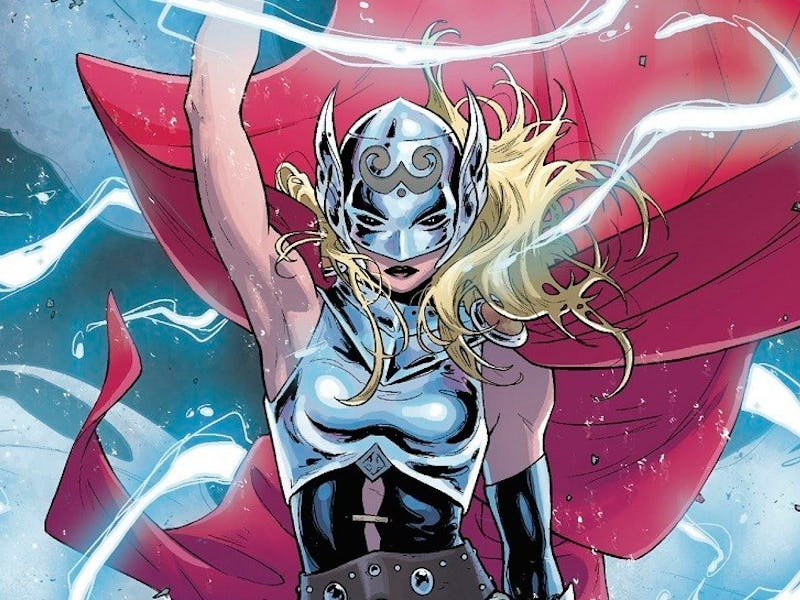In the last month, DC Comics have outsold Marvel’s books by a huge margin, despite the Batman and Justice League publisher producing only a third of the total numbers of comics released during the same time period as Marvel. In an interview with ICV2, Marvel’s Senior Vice President David Gabriel described Marvel’s recent paradigm shift as paying off in the long-run, recent numbers aside. That shift in focus has involved putting some historically popular superheroes — Thor, Iron Man, Captain Marvel, Wolverine, The Avengers — on the back-burner in favor of younger heroes, either female, POC, or both. Those new heroes include Thor: Goddess of Thunder, a black female Iron Man, Captain Marvel’s Muslim protégé Kamala Khan, a female Wolverine-esque X-23, and A-Force, the all-female version of The Avengers.
Gabriel says the risk Marvel took, possibly offending the long-standing readers who might take issue with all the changes, was obviously worth it. “To me, the paradigm shift started for us when we brought in the female Thor, because that horrified and supposedly alienated the people you’re talking about, but it also certainly rejuvenated that character and that book and made it one of our bestselling books. It was up there, but certainly not one of our bestsellers. Now, three years later, she’s still around and we’re bringing the regular Thor back.”
Gabriel is correct in calling Marvel’s female Thor a success for the company: when Jane Foster debuted as the new wielder of Mjölnir, her comics sold at an astounding rate, which Marvel matched and surpassed later with Black Panther. “We’ve seen the print runs on [Black Panther],” said Gabriel, “and it’s nothing like we ever expected. A lot of that is Ta-Nehisi Coates, of course.”
On the subject of making pseudo-controversial changes to classic Marvel characters, Gabriel added that internet outrage is never a good indicator of what actual comic book readers and fans want. “The first thing we do is watch the sales. If you watch the Internet and the message boards, you would do the wrong thing. And I think there are publishers who do that, which is unfortunate.” Gabriel has said the books that online commenters find most offensive typically are Marvel’s bestsellers.
